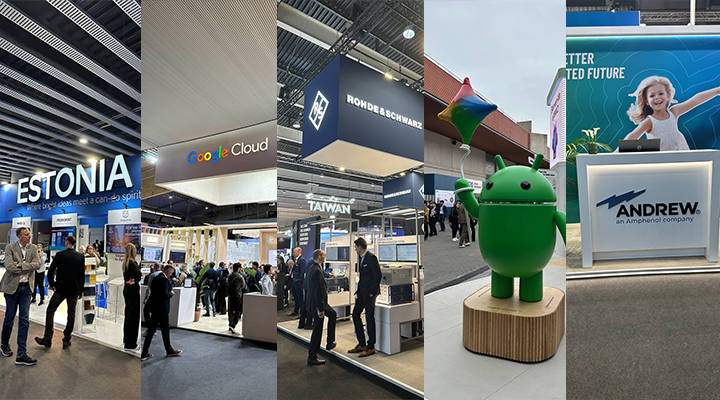Our insights from MWC25 in Barcelona
Mobile World Congress 2025 in Barcelona once again brought together global leaders in the telecommunications industry, becoming a world stage for showcasing cutting-edge technologies. One of the standout trends this year was the rapid evolution of artificial intelligence – particularly in the field of conversational AI. Apifonica, a company developing AI‑powered automated telecom solutions, took part in the event to build new partnerships and explore how emerging technologies can be applied in real B2B use cases.
MWC25: a global showcase of innovation
Many companies were represented at the exhibition – from developers of software and digital services to hardware manufacturers and pioneers of wireless communication. Entire countries hosted national pavilions, presenting local ecosystems and innovations side by side. The diversity and scale of MWC25 made it a true global technology showcase.

AI in practice, not just on paper: what MWC25 was really about
Artificial intelligence dominated the spotlight at MWC25. Almost every major vendor was eager to present their progress in AI – from generative models to voice assistants and intelligent platforms for contact centres. But behind the buzzwords and slogans were real, working use cases – which was especially valuable for B2B players.
“It was fascinating to see that telecom providers and aggregators are not just talking about AI, but actively embedding it into client‑facing products. We saw AI being applied to voice analytics, customer service and even SMS infrastructure,” says Denis, General Manager of Apifonica.
New markets, real conversations: why Apifonica went to MWC25
For Apifonica Global, attending MWC25 was not only about staying on top of tech trends – it was a strategic move to expand the company’s partner network. Earlier this year, Apifonica began actively entering the Latin American market, and the event in Barcelona provided an ideal opportunity to meet potential clients face‑to‑face and discuss specific business scenarios.
“It was important for us not just to showcase our product, but to listen – to understand what partners expect and how competitors operate in the region. We had several meaningful conversations and even signed our first partnership agreement right at the event,” Denis explains.
In parallel, Apifonica’s team focused on gathering feedback from existing clients to better understand which AI‑based solutions are truly in demand and how they’re being received by the market.
A turning point for product strategy
For Apifonica, MWC25 was more than a global showcase – it marked a strategic inflection point. One of the key insights was the need not just to innovate technologically, but to refine and adapt solutions to meet the needs of specific markets and partners.
“It became clear that our product must evolve towards a partner‑centric model. We saw an emerging niche – local B2B players such as call centres, SMS providers and telecom operators. They have access to end clients but often lack turnkey AI solutions. That’s where we can truly add value,” Denis shares.
Modern speech recognition and synthesis technologies already enable voice assistants to operate in over 100 languages. However, successful implementation still requires local expertise and cultural adaptation. That’s why one of Apifonica’s development priorities in the coming years will be building a network of regional partners capable of implementing, fine‑tuning and supporting AI assistants on the ground.
Technology outpacing standards
The evolution of conversational AI has progressed far beyond simple use cases, such as autoresponders or FAQ bots. Ironically, its very pace has become one of the industry’s greatest challenges. Each company builds its own ecosystem, and the lack of interoperability between vendors results in a fragmented user experience – making it difficult to scale solutions effectively.
“We see major potential for providers of applied AI solutions. There are plenty of technologies and platforms available, but there’s a real shortage of service‑layer products that unify tools from different vendors and make them truly usable. End‑users – whether companies or teams – need clear, practical interfaces that allow them to apply and adapt AI to their daily operations,” Denis points out.
The voice of the future is growing louder
MWC25 clearly demonstrated that the future of communication lies in intelligent, personalised interfaces. AI‑powered voice solutions are becoming an essential part of the customer experience – and companies that can flexibly adapt their tech to real‑world demands are already gaining a competitive edge.
For Apifonica, the event validated the path we’ve chosen. What lies ahead is further integration, international growth, and a focus on building technology that understands and speaks the language of business.
Book a chat with our expert to explore Apifonica Global products. It’ll be interesting – we promise!